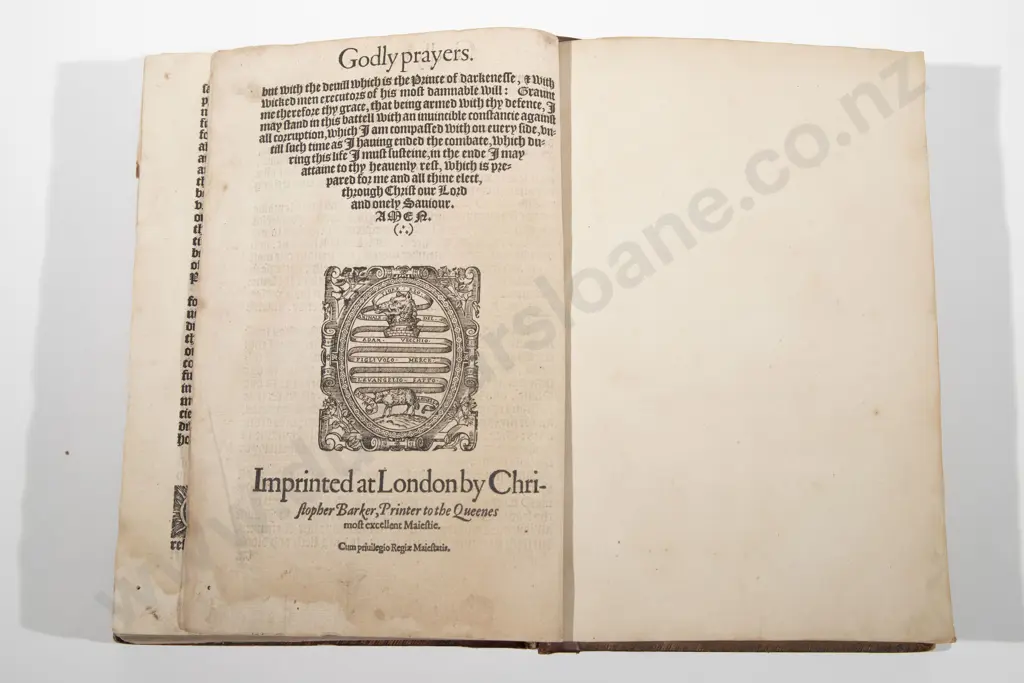Rare Book
Tuesday, 23 April - Thursday, 9 May 2024
(-) THE booke of Common prayer
Current Bid $12,000 (1 bid, reserve not met)
This lot is now closed 9 May 2:04 pm (NZST)
Buyer premium and GST is additional to your bid.
All bids are subject to our buyer terms and conditions
Lot Details
and administration of the Sacraments and other rites and ceremonies in the Church of England (and) The psalter or psalmes of Dauid, after the translation of the great Bible. Imprinted at London: by Christopher Barker, printer to the Queenes maiestie (1580) ESTC S93790; STC (2nd ed) 16307; Griffiths 1580:1 Folio, pages unnumbered (448pp); signatures (3 dots in triangle)8 (paragraph mark)10 A-P8 Q6 A-K8 Black letter with large woodcut initials. The Psalter has seperate title-page and register. This edition is exceptionally rare, three recorded copies - at British Library (2) and at John Rylands Library, all of which are defective and all lack title leaf. No copy in Book Auction Records since 1908. Binding is full tree calf (but not recent) rebacking with red morocco title-label, mild cracking to joints but a sound and attractive copy. Condition - Lacks the first four leaves, otherwise complete: 220 leaves present of 224; Good margins (page size 27 x 18cm); foot of of first few leaves has been damped, causing brittleness of lower vmargin with occasional short loss affecting a few words from bottom of corner of Q2' 2 leaves of first signature loose, these mildly frayed at outer edges; tiny wormhole in some lower margins (not affecting text) some mild staining and browning. A very, very rare Elizabethan volume, unusually with no example in North America, only the 2 in London and one in Manchester. Here under Elizabeth I, the theology of the Holy Communion combined that of previous Prayer Books from 1549 and 1552. Here are printed the sentences for the administration of the Holy Sacraments that combine the traditional sentence incorporating the Catholic idea of transubstantiation with the reformist view of a memorial feast. Now under Elizabeth I as Governor of the church, we have the combination that allows different understandings to be held in the doctrine of the Real Presence which Elizabeth held to be both proper and meaningful. This was a theology comfortable and workable to the present day in the world-wide Anglican Communion and Episcopalian Churches. Along with other changes it is a credit to Elizabethan statesmanship which also allowed a breadth in understanding that was more than just timely and practical, it allowed a wider compass of acceptance.

